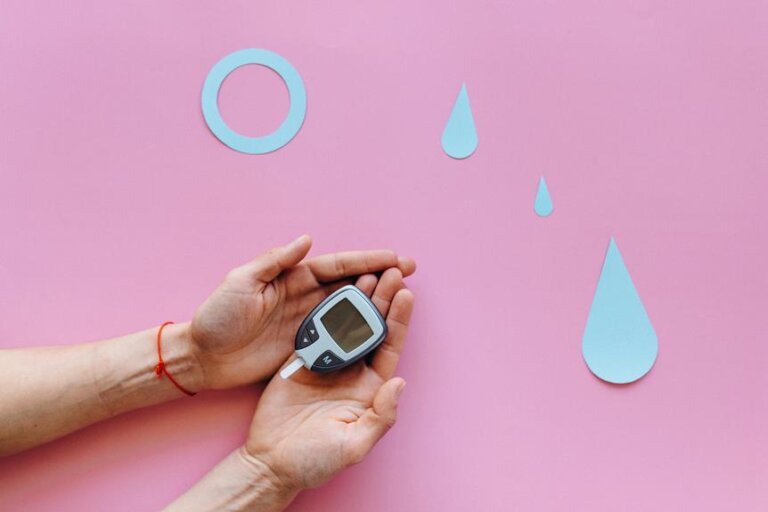Taking Control: Empowering Yourself in the Face of Diabetes-Related Amputations
As you sit in the doctor’s office, the news of a diabetes-related amputation sinks in. The road ahead may seem daunting, but there is a path to empowerment that awaits you.
https://ai.invideo.io/watch/XYRkIPlQmgP
Understanding the complexities of managing diabetes and its potential complications is crucial, but it’s only the beginning. By learning how to take control of your health, you can pave the way for a future filled with resilience and agency.
Reclaiming your power in the face of adversity is not just a possibility—it’s a journey waiting to unfold.
Understanding Diabetes-Related Amputations
If you have diabetes, understanding diabetes-related amputations is crucial for taking control of your health. Diabetes can lead to complications such as nerve damage and poor circulation, increasing the risk of amputations, usually in the lower limbs. One common cause of amputations in diabetics is peripheral artery disease, where narrowed arteries reduce blood flow to the limbs, leading to tissue damage and potential gangrene.
It’s essential to recognize the warning signs that may indicate the need for an amputation. These signs include persistent pain, sores that won’t heal, discoloration of the skin, and numbness in the affected area. Early detection and proactive management of these symptoms are key to preventing the progression of complications that could ultimately result in amputation.
Furthermore, it’s crucial to work closely with your healthcare team to control your blood sugar levels, blood pressure, and cholesterol. By managing your diabetes effectively and making lifestyle changes such as quitting smoking and adopting a healthy diet and exercise routine, you can significantly reduce the risk of diabetes-related amputations and improve your overall quality of life.
Importance of Self-Care Practices
Embracing self-care practices plays a pivotal role in managing diabetes-related complications and promoting overall well-being. Taking charge of your health through consistent self-care routines is essential. Monitoring your blood sugar levels regularly, following a balanced diet, engaging in physical activity, and taking prescribed medications are crucial steps in controlling diabetes and reducing the risk of complications.
Maintaining proper foot care is especially important for individuals with diabetes to prevent infections and ulcers that may lead to amputations. Inspecting your feet daily, keeping them clean and moisturized, wearing comfortable shoes, and avoiding walking barefoot are key practices to protect your feet.
Additionally, managing stress levels through activities like mindfulness, meditation, or hobbies can positively impact your blood sugar levels and overall health. Prioritizing self-care not only helps in managing diabetes but also empowers you to take control of your health and well-being.
Seeking Support From Healthcare Providers
When facing diabetes-related amputations, it’s essential to communicate openly with your healthcare providers about your concerns and needs.
Building trust with your medical team can help you feel supported and understood throughout your journey.
Advocate for personalized care that takes into account your individual circumstances and preferences.
Importance of Communication
Seeking support from your healthcare providers is essential in navigating the complexities of diabetes-related amputations. Clear and open communication with your medical team is crucial for understanding your condition, treatment options, and recovery process. Make sure to ask questions, share your concerns, and actively participate in creating a tailored care plan.
Keep your providers informed about any changes in your symptoms, medication side effects, or emotional struggles you may be facing. By maintaining a collaborative relationship based on trust and honesty, you can ensure that you receive the best possible care and support. Remember, your healthcare providers are there to help you through this challenging journey, so don’t hesitate to reach out whenever you need guidance or reassurance.
Building Trust With Providers
To establish a solid foundation for your healthcare journey in diabetes-related amputations, fostering trust with your providers is paramount. Openly communicate your concerns, ask questions, and be actively involved in your care. Building a trusting relationship with your healthcare team can lead to better outcomes and a more personalized treatment plan.
Advocating for Personalized Care
Establish a collaborative partnership with your healthcare providers to ensure personalized care that meets your unique needs and preferences. Communicate openly about your concerns, goals, and treatment preferences. Ask questions to fully understand your condition and treatment options.
Advocate for yourself by expressing what works best for you and what doesn’t. Work together with your healthcare team to develop a care plan that considers your lifestyle, values, and personal circumstances. Stay engaged in your care by attending appointments regularly and actively participating in decision-making.
Making Lifestyle Changes for Better Health
Improving your health starts with incorporating small, sustainable lifestyle changes that can have a significant impact on managing diabetes-related amputations. Begin by focusing on a balanced diet rich in fruits, vegetables, whole grains, and lean proteins. Monitoring your carbohydrate intake and spacing out meals can help stabilize blood sugar levels.
Regular physical activity is key – aim for at least 30 minutes of exercise most days of the week, whether it’s walking, swimming, or cycling. Remember, even small bursts of activity can make a difference.
In addition to diet and exercise, it’s crucial to prioritize good foot care. Check your feet daily for any cuts, sores, or blisters, and ensure your shoes fit properly to prevent injuries. Managing stress through relaxation techniques like deep breathing, meditation, or yoga can also benefit your overall well-being and blood sugar control.
Navigating Challenges With Resilience
Overcoming obstacles with determination and a positive mindset can significantly impact your journey in navigating challenges with resilience. When faced with the complexities of diabetes-related amputations, it’s crucial to approach each hurdle with a sense of inner strength. Embracing a resilient attitude allows you to adapt to changes, bounce back from setbacks, and find new ways to thrive despite the challenges ahead.
In the midst of difficulties, remember to lean on your support system. Whether it be family, friends, healthcare professionals, or support groups, having a strong network can provide encouragement and guidance during tough times. Additionally, staying informed about your condition and treatment options can empower you to make informed decisions and take control of your health journey.
Cultivating resilience involves actively seeking solutions, setting realistic goals, and celebrating small victories along the way. By maintaining a proactive approach and nurturing your mental and emotional well-being, you can navigate the challenges of diabetes-related amputations with courage and determination. Remember, resilience isn’t about avoiding hardships, but rather about facing them head-on and emerging stronger on the other side.
Reclaiming Agency and Empowerment
With determination and self-awareness, you can embrace your journey of reclaiming agency and empowerment after diabetes-related amputations. It’s normal to feel overwhelmed, but remember, you hold the power to shape your future.
Start by acknowledging your feelings and allowing yourself to grieve the loss. This is a crucial step in moving forward. Next, focus on what you can control. Take charge of your health by following your treatment plan diligently and making necessary lifestyle adjustments. Surround yourself with a supportive network of friends, family, or a support group to lean on during challenging times.
Empowerment comes from within, so nurture a positive mindset and celebrate every small victory along the way. Set realistic goals and break them down into manageable steps. By taking proactive measures and staying informed about your condition, you’re actively reclaiming control over your life. Remember, setbacks may occur, but staying resilient and adaptable will help you bounce back stronger.
Embrace your journey with courage and determination, knowing that you have the strength to overcome any obstacle that comes your way.
Frequently Asked Questions
What Are Some Alternative Treatments or Therapies That Can Help in the Healing Process After a Diabetes-Related Amputation?
You can explore alternative treatments like hyperbaric oxygen therapy, physical therapy, and nutritional support to aid in the healing process after a diabetes-related amputation. These therapies can complement traditional medical care and promote better outcomes.
How Can Family Members and Friends Best Support Someone Who Has Undergone a Diabetes-Related Amputation?
Support the person who had a diabetes-related amputation by being there to listen, offer encouragement, and assist with daily tasks. Show empathy, educate yourself about their condition, participate in their care, and help them stay positive.
Are There Any Specific Financial Resources or Assistance Programs Available for Individuals Facing Diabetes-Related Amputations?
Yes, there are specific financial resources and assistance programs available for individuals facing diabetes-related amputations. You can explore options like disability benefits, financial aid programs, and community organizations that offer support during this challenging time.
How Can Individuals Maintain a Positive Body Image and Self-Esteem After an Amputation?
Embrace your uniqueness after amputation. Focus on inner strength and resilience. Surround yourself with supportive people. Engage in activities that boost confidence. Remember, your worth is not defined by your physical appearance.
What Are Some Strategies for Preventing Future Complications or Additional Amputations in Individuals With Diabetes?
To prevent future complications or more amputations with diabetes, monitor blood sugar levels diligently, maintain a healthy diet, stay physically active, follow prescribed medications, attend regular medical check-ups, and promptly address any foot problems. Your proactive approach is crucial for your well-being.
Conclusion
Take control of your health journey like steering a ship through stormy waters. By understanding diabetes-related amputations, practicing self-care, seeking support, and making lifestyle changes, you can navigate challenges with resilience.
Empower yourself to reclaim agency over your health and well-being. With determination and support, you can steer towards a brighter, healthier future despite the obstacles in your path. You have the power to overcome, thrive, and live a fulfilling life.






